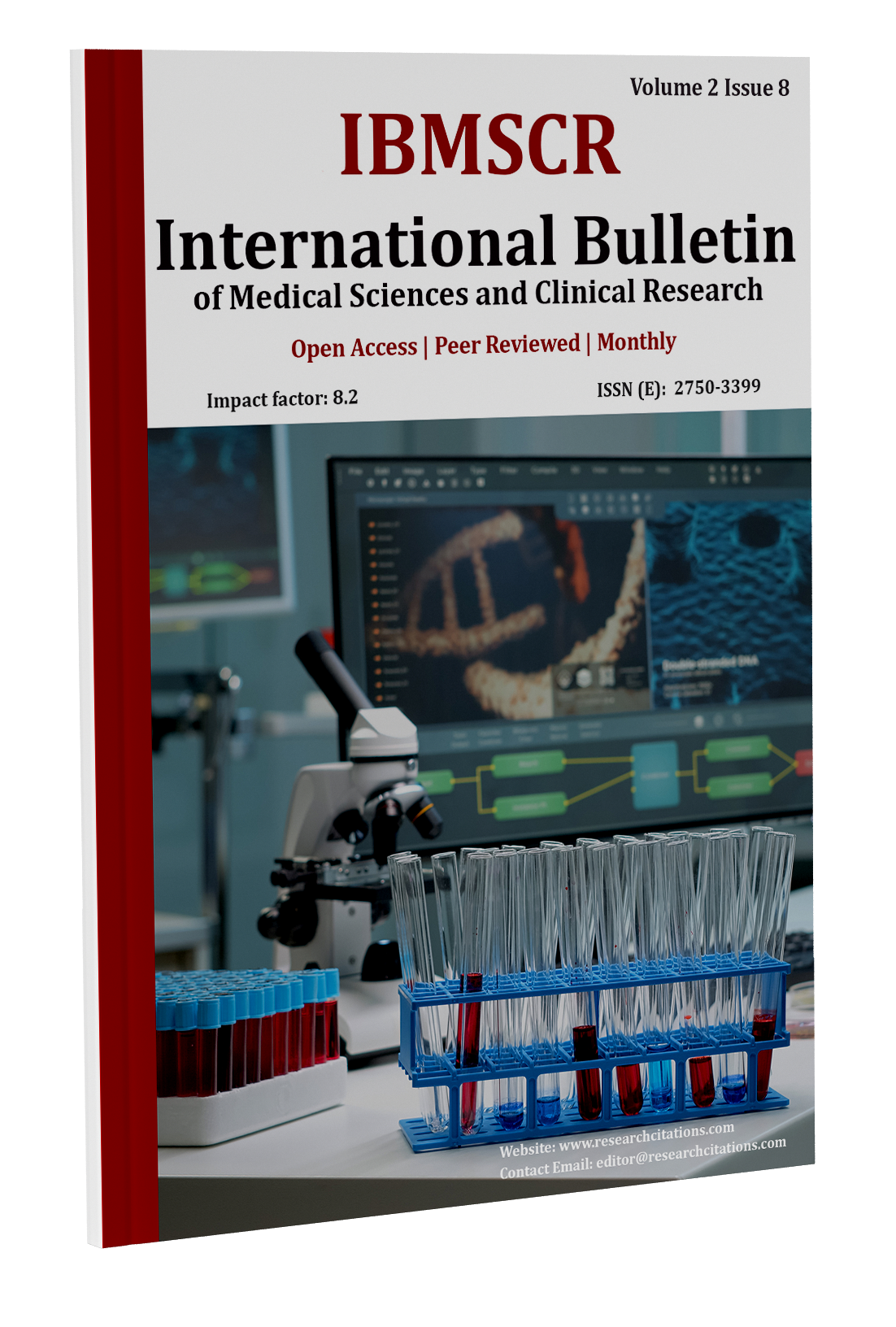INVESTIGATION OF THE ROLE OF IMMUNE SYSTEM FACTORS AND VASCULAR ANGIOGENESIS IN THE TUMOR MICROENVIRONMENT ON OVARIAN CANCER PROGRESSION
DOI:
https://doi.org/10.37547/Keywords:
ovarian cancer, tumor microenvironment, immune cells, angiogenesis, VEGF, PD-L1, HIF-1α, tumor-associated macrophages, hypoxia, immunotherapy.Abstract
Ovarian cancer is a major contributor to cancer-related mortality among women worldwide. The poor prognosis is often due to its asymptomatic early stages, delayed diagnosis, and the high incidence of chemoresistant recurrences. Recent attention has shifted towards understanding the role of the tumor microenvironment (TME), particularly immune cells and vascular angiogenesis, in ovarian cancer progression. This study analyzes the structural and functional characteristics of immune cell populations (CD4⁺ and CD8⁺ T-lymphocytes, tumor-associated macrophages, NK cells) and evaluates the expression of key angiogenic and hypoxia-related markers (VEGF, CD31, HIF-1α) in both primary and metastatic ovarian tumors.
Downloads
References
1.Hamanishi J, Mandai M, Ikeda T, et al. Safety and Antitumor Activity of Anti-PD-1 Antibody, Nivolumab, in Patients With Platinum-Resistant Ovarian Cancer. J Clin Oncol. 2015;33(34):4015–4022.
2.Ferrara N, Adamis AP. Ten years of anti-vascular endothelial growth factor therapy. Nat Rev Drug Discov. 2016;15(6):385–403.
3.Zhang L, Conejo-Garcia JR, Katsaros D, et al. Intratumoral T cells, recurrence, and survival in epithelial ovarian cancer. N Engl J Med. 2003;348(3):203–213.
4.McDonald DM, Baluk P. Significance of blood vessel leakiness in cancer. Cancer Res. 2002;62(18):5381–5385.
5.Gabrilovich DI, Nagaraj S. Myeloid-derived suppressor cells as regulators of the immune system. Nat Rev Immunol. 2009;9(3):162–174.
6.Semenza GL. HIF-1 mediates metabolic responses to intratumoral hypoxia and oncogenic mutations. J Clin Invest. 2012;122(11):3664–3671.



